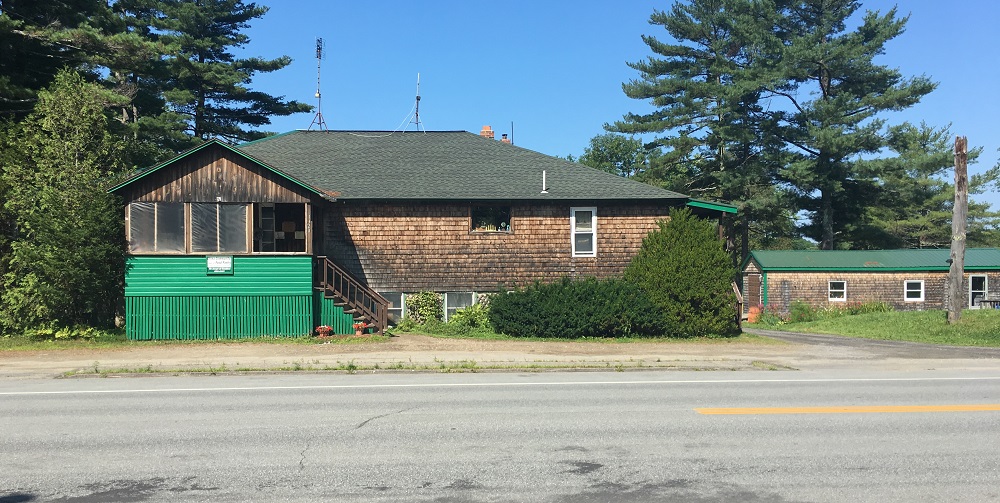Area food pantries negatively impacted by USDA cuts
by Eric W. Austin
Dave Carew
Roland Hallee
Due to budget cuts by the Trump Administration, Good Shepherd Food Bank, which distributes food to more than 600 partner-organizations including Winslow Community Cupboard food pantry, and China Food Pantry, is receiving, effective April 1, 2025, a 50 percent reduction in the amount of food it usually receives from the U.S. Department of Agriculture (USDA).
Heather Paquette, President of Good Shepherd, called the 50 percent cut an “almost insurmountable” amount, and said it will make it significantly more difficult to address the needs of the growing number of food-insecure Mainers.
The Emergency Food Assistance Program, (TEFAP) was created to help supplement the diets of lower-income Americans through emergency food assistance.
Local community food banks and pantries serve as lifelines for thousands of Mainers facing food insecurity. These crucial organizations now enter perhaps their most challenging period in recent memory as federal funding cuts threaten their operations. Despite these obstacles, central Maine’s food assistance network remains determined to fulfill its mission – though they need community support now more than ever.
Maine faces one of the highest rates of food insecurity in New England, with approximately 180,000 residents, including 45,000 children, struggling to access adequate nutrition. Good Shepherd Food Bank, Maine’s sole Feeding America-affiliated food bank, distributes roughly 40 million meals annually across the state, serving as the backbone of the food security network that smaller local pantries rely upon.
“We were told by Good Shepherd [on Friday, March 28] there would be a 20 percent cut in produce, starting in April.”
– Winslow Community Cupboard food pantry Operations Manager Bruce Bottiglierie –
Asked how the USDA cuts will specifically impact Winslow Community Cupboard food pantry, Operations Manager Bruce Bottiglierie said, “We were told by Good Shepherd [on Friday, March 28] there would be a 20 percent cut in produce, starting in April. And because Winslow Community Cupboard is a hub for other area food pantries, this will negatively impact about 25 other food pantries in Kennebec, Waldo, and Somerset counties.”
Bottiglierie said he is trying to “take this with a grain of salt” and not panic, because so many “threats” from the Trump administration have been later retracted.
Recent USDA funding cuts have delivered a significant blow to this system. Starting April 1, Good Shepherd expects a 50 percent reduction in food received through the Emergency Food Assistance Program (TEFAP), dropping from 500,000 pounds to just 250,000 pounds monthly. This represents about 20 percent of all food they distribute. Compounding the problem, the USDA has ended the Local Food Purchase Assistance Program (LFPA), which helped Good Shepherd purchase produce from approximately 100 Maine farmers. This cancellation results in a projected loss of 500,000 to 600,000 pounds of fresh, local produce.
These cuts couldn’t come at a worse time, as grocery prices remain stubbornly high and food insecurity continues to rise. Central Maine food pantries, which depend heavily on Good Shepherd for supplies, now face increased strain on their operations and resources.
Alarmed by the sudden announcement of the food-delivery reduction, a group of 25 U.S. Senators, including Sen. Angus King, called for USDA distributions to be reinstated, and that “concrete reasoning” be provided as to why deliveries are being reduced. Sen. King told the Portland Press Herald that the delivery-reduction “takes food away from hungry Maine people already facing high grocery prices, and hurts Maine farmers who are already squeezed by tariffs and other cuts to domestic markets.”
According to the national nonprofit Feeding America, one in eight Mainers – or about 180,000 people – faces hunger, which is the highest food-insecurity rate in New England. That number includes approximately 45,000 Maine children.
Local pantry directors, however, remain resolute. “Our pantry survives on small donations and grants,” explains Allison Brooks of the Jefferson Community Food Pantry. “The best way to help a food pantry is by donating directly to them. That gives them the ability to purchase goods needed. In all, I have faith that our pantry will survive this bump if it comes with the help of our amazing community.”
Tom Parent, Chairman of the Board of Directors for the China Community Food Pantry, shares this determined outlook. “The pantry will continue to do its best to support those in need in our area with the continued support of the Good Shepherd Food Bank, the generous donations from the area Hannaford stores, and the invaluable food and financial contributions from our local community members,” he affirms.
At the state level, Maine legislators are considering measures to support local food initiatives, such as expanding investment in the Mainers Feeding Mainers program, to help mitigate the impact of these federal cuts. These efforts recognize the critical importance of maintaining food access across the state, particularly in rural central Maine communities.
Despite the significant challenges ahead, local food pantries express cautious optimism about their future, drawing strength from the communities they serve. Many report seeing increased local donations as news of the federal cuts spreads, demonstrating Maine’s strong tradition of neighbors helping neighbors.
Food pantry directors across central Maine emphasize that monetary donations provide the most flexibility, allowing them to purchase exactly what their clients need most. They also welcome food donations, volunteer time, and advocacy efforts to support long-term food security solutions.
As this situation continues to evolve, one thing remains clear: central Maine’s food pantries may face unprecedented challenges, but with community support, they remain committed to ensuring no neighbor goes hungry. The resilience of these organizations – and the communities that sustain them – will be tested in the months ahead, but the spirit of mutual aid continues to offer hope amid uncertainty.
How You Can Help
The reduction in food will mean the food bank has to rely more heavily on other sources of food and funding, including donations from businesses and individual monetary donations.
Last Thursday, Winslow Community Cupboard food pantry served 270 food-insecure families, Bruce Bottiglierie said. Those who would like to donate to Winslow Community Cupboard food pantry may do so by sending a check payable to “Winslow Community Cupboard”, to 12 Lithgow St., Winslow, ME 04901, or by visiting WCCPantry.com.
For more information, please call (207) 616-0076 or email WinslowCupboard@Gmail.com.
Responsible journalism is hard work!
It is also expensive!
If you enjoy reading The Town Line and the good news we bring you each week, would you consider a donation to help us continue the work we’re doing?
The Town Line is a 501(c)(3) nonprofit private foundation, and all donations are tax deductible under the Internal Revenue Service code.
To help, please visit our online donation page or mail a check payable to The Town Line, PO Box 89, South China, ME 04358. Your contribution is appreciated!






Leave a Reply
Want to join the discussion?Feel free to contribute!